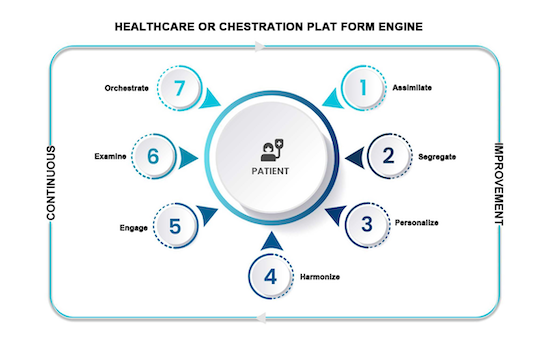
The rise of remote patient monitoring (RPM) through smart devices is transforming healthcare by enabling personalized, data-driven patient care from a distance. By continuously tracking vital health information, smart devices like blood pressure monitors, glucose meters, and wearables provide real-time data that allows clinicians to monitor patient health proactively and respond to any changes in their conditions. iMedHub is at the forefront of this shift, helping healthcare providers harness the power of RPM to improve patient outcomes, enhance engagement, and increase clinical efficiency.
The Growing Need for Personalized Healthcare
In the U.S., the burden of chronic diseases is substantial, with over 133 million Americans affected and annual healthcare costs exceeding $3.8 trillion. Traditional care models often fall short in addressing individual needs, especially for patients managing chronic conditions who require close, ongoing monitoring. By offering personalized healthcare through RPM, iMedHub empowers healthcare providers to tailor care plans that respond to each patient’s unique health profile, making preventive care a reality and ultimately reducing the need for costly emergency interventions.
How RPM with Smart Devices Supports Personalized Care
Through iMedHub, RPM technology tracks patients’ health metrics in real time and delivers actionable insights to healthcare providers. Here’s how these data-driven insights make a difference:
- Continuous Health Monitoring: RPM devices like smartwatches and medical-grade wearables continuously monitor key health metrics, such as heart rate, blood pressure, and blood glucose levels. This information is transmitted to clinicians through cellular or Bluetooth technology, enabling timely, personalized adjustments to care plans and prompt responses to potential health concerns.
- Enhanced Patient Engagement: iMedHub encourages patients to stay connected to their health data, which promotes long-term adherence to treatment plans. Personalized notifications, health reminders, and daily metrics empower patients to become active participants in managing their health, supporting adherence to lifestyle changes that can lower risk factors for conditions such as heart disease and diabetes.
- Efficient Risk Stratification: With data from RPM devices, iMedHub can help providers identify high-risk patients who require more intensive monitoring. This approach allows clinicians to allocate resources where they’re needed most, supporting preventive care for high-risk patients while optimizing operational efficiency.
Real-World Use Cases of iMedHub’s RPM Platform
- Reducing Hospital Readmissions for Heart Disease: In one example, iMedHub’s RPM solutions helped a Texas-based hospital system lower hospital readmissions for patients with chronic heart disease by 20%. By continuously tracking heart rate, oxygen levels, and other metrics, clinicians identified high-risk patients and proactively managed their care, reducing emergency room visits and enhancing patient satisfaction.
- Improving Diabetes Management: iMedHub’s RPM platform enabled a primary care network in California to enhance diabetes care for its Medicare patients. With real-time blood glucose tracking and data-driven dietary and exercise recommendations, the network saw a 25% improvement in glycemic control and a reduction in diabetes-related complications.
The Benefits of Personalized, Data-Driven RPM Care
iMedHub’s data-driven, personalized RPM solutions offer numerous benefits for patients and providers alike:
- Improved Health Outcomes: Patients receiving personalized care show substantial improvements in chronic disease management, such as better blood pressure and glucose control. These improvements can lead to lower hospitalization rates and reduced healthcare costs over time.
- Increased Patient Engagement: iMedHub’s tools support patient engagement by providing real-time access to health metrics and lifestyle recommendations, which can lead to improved adherence to prescribed treatment plans.
- Operational Efficiency: By focusing on preventive care for high-risk patients, iMedHub helps healthcare providers optimize resource allocation, reduce emergency interventions, and lower overall healthcare costs.
Conclusion: iMedHub’s Role in Transforming Healthcare Through RPM
As healthcare continues to move toward personalized care, iMedHub’s RPM platform provides the technology and data insights necessary to deliver tailored healthcare at scale. By utilizing smart devices for continuous monitoring and proactive care management, iMedHub empowers healthcare providers to deliver better outcomes for their patients. With these capabilities, iMedHub is transforming the way healthcare is delivered, ensuring patients receive personalized, preventive care that supports long-term wellness.
